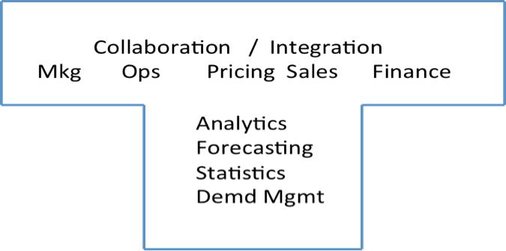How to hire a revenue manager with all the ‘right stuff’
When recruiting a revenue manager broad business skills are more important than mathematical genius, writes guest columnist Tom Bacon
Recruiting a revenue manager with the ‘right stuff’ is harder than you might think. In fact, the list of ideal characteristics for an airline revenue management analyst could come with the heading ‘Business Superman’:
- Highly analytical, trained in statistics, econometrics, big data analytics and complex algorithms
- A great communicator, strong at integrating across Sales, Marketing, Operations, Strategy, e-commerce, and other departments
- Creative, innovative, with strong business acumen.
Perhaps RM departments should be looking to fill open slots with many former airline CEO’s.
Demand management groups talk of the ‘T’ in the job requirements for RM analysts – analysts need both breadth (a broad business perspective) and depth (highly quantitative; analytically sophisticated).

So, if you can’t entice a former CEO to take the job, where do you find the talent? MBAs? BAs? Economists? Mathematicians? Computer science folks? Liberal arts?
Actually, all of these backgrounds can be terrific for revenue management – and all are, at the same time, insufficient on their own. In fact, finding candidates that perfectly fit the job requirements to a ‘T’ is a tall order. So we can identify the best candidates for RM in recruiting, but it’s just as critical to offer training for gaps in the ‘T’.
Since you will not likely find someone who can do it all, the big question is: where is it best to compromise? What are the easiest gaps to fill through training? Generally, it’s the statistical side where we can compromise in recruiting.
On that note, here are my top tips.
1. Recruit for broad business skills: It’s much harder to train for broader business skills, including communication and integrative skills that are essentially people skills – than the more technical elements of the position. In fact, somebody with a liberal arts background may well be a better fit than a mathematics major. Revenue management requires considerable back-and-forth with colleagues at both high and low levels in an organisation, and across multiple functions, many of which are not as quantitative as RM itself. One outstanding RM analyst who worked for me had training as a creative writer.
Recruiting for the broader skill set also recognises that revenue management is a great entry point in airline management. At airlines I have worked for, RM analysts have moved into careers in sales, marketing, planning, operations and strategy. These other functions value the customer, network and competitive understanding that comes from experience in revenue management as well as the communication and integration skills that distinguish the best RM analysts.
The interview questions should be focused on problem-solving and business issues – thinking analytically is much more important than a degree in statistics.
2. Train for the mathematics side: Although it may not be best to recruit a math nerd, we must avoid superficial knowledge that would treat the RM model as a ‘black box’. On the other hand, with experience – and daily feedback available in revenue management – analysts can quickly learn the kinds of market changes that the RM model is slow to respond to and when to best intervene. In fact, although the analyst cannot be afraid of the system, he must also be humble in his ability to improve the sophisticated modeling.
In addition, to fill the gap in higher level mathematics, RM departments need to develop processes that reduce the need for such mathematical sophistication. Tools for less statistically oriented analysts include standardised processes and reports, department-wide parameters, agreed-upon red flags, and regular and open departmental meetings.
· Standardisation: By operationalising RM – implementing standards processes across all markets – analysts can utilise the power of the RM system while simultaneously exploiting his broader business skills. Standardisation applies to processes, reporting, forecast parameters, and alerts.
· Meetings: Regular meetings – as often as daily – with all analysts, allows everyone to benefit from each other and for new analysts to quickly learn what is important and what is not.
In summary then, superior revenue management requires a range of skills that is not easy to recruit for. However, recruiting for broad business skills, including the ability to communicate well and collaborate across functions, is an excellent base for development as a revenue management analyst. This needs to be supplemented, however, by RM system training and implementation of processes that address any gap in statistics and mathematical modeling.
Tom Bacon, a 25-year airline veteran and industry consultant in revenue optimisation, pens a twice-monthly column for EyeforTravel.com. Questions? Contact Tom at tom.bacon@yahoo.com or visit his website http://makeairlineprofitssoar.wordpress.com/

